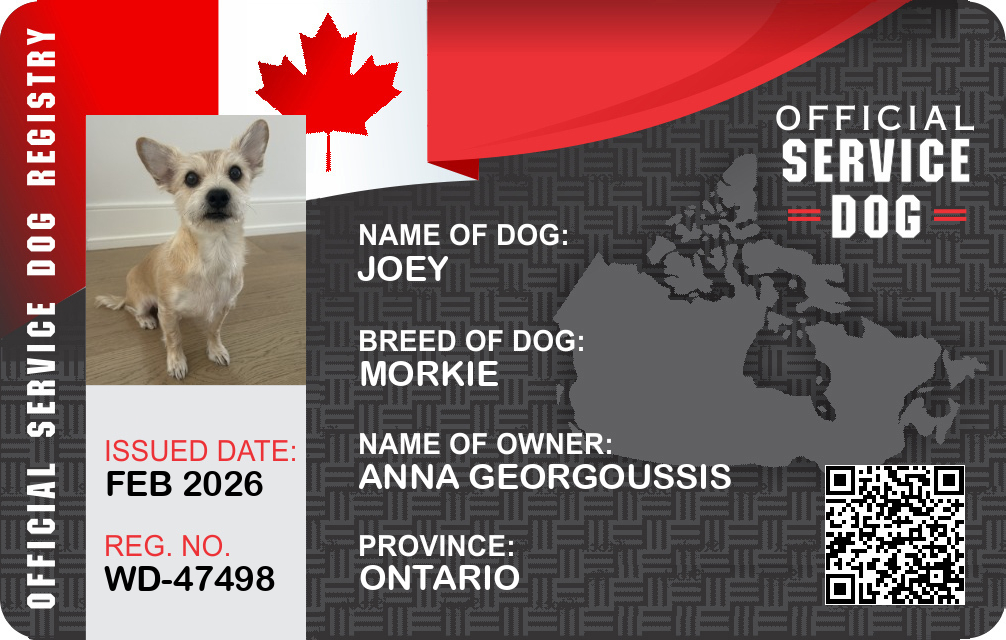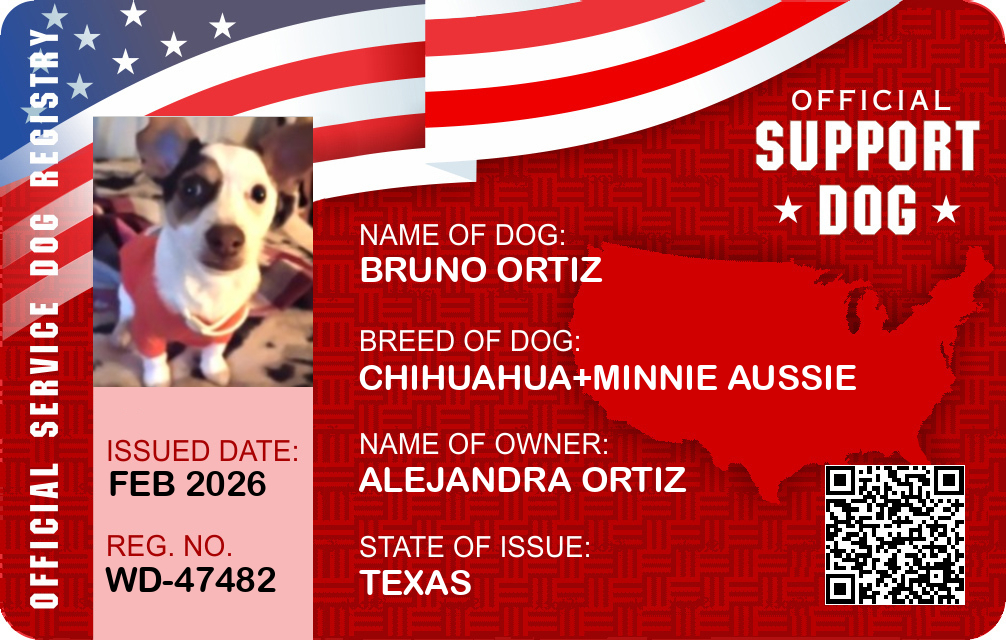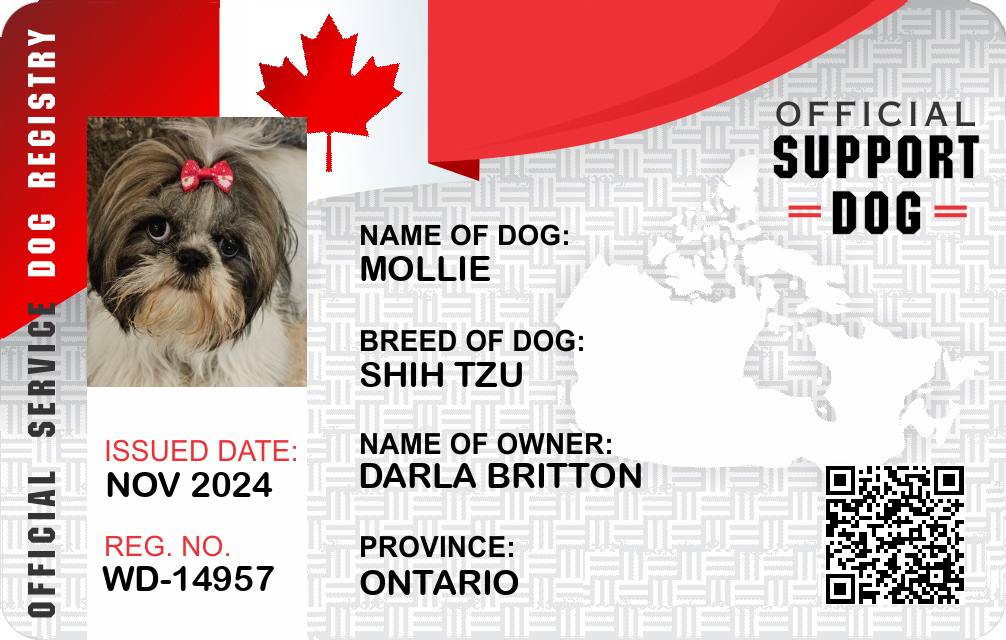Alabama Emotional Support Animal Laws
Get Your Documents
Example State Cards


Overview of ESA and Legal Definitions in Alabama
What is an Emotional Support Animal?
An Emotional Support Animal (ESA) is defined as a companion animal that provides comfort, support, and therapeutic benefits to individuals suffering from emotional or psychological conditions. Unlike service animals, which are trained to perform specific tasks for individuals with disabilities, ESA do not require specialized training. In Alabama, understanding the Alabama Emotional Support Animal Laws is crucial, as in other states, the primary role of an ESA is to offer emotional stability and support, alleviating symptoms of conditions such as anxiety, depression, PTSD, or panic disorders.
How ESA Differ from Service Animals
The distinction between ESA and service animals is significant and underlines many legal protections and restrictions. Service animals are specifically trained to perform tasks directly related to a person’s disability, such as guiding a person who is blind or alerting a person who is deaf. ESA, on the other hand, provide support through companionship and are not trained to perform specific tasks. In Alabama, as elsewhere, while service animals are often granted broad access to public spaces under the Americans with Disabilities Act (ADA), ESA do not enjoy the same level of access due to their lack of training.
Key Federal Laws Affecting ESA (e.g., FHA, ACAA)
Several federal laws impact the rights of ESA owners in Alabama, particularly the Fair Housing Act (FHA) and the Air Carrier Access Act (ACAA). The FHA prohibits discrimination in housing, ensuring that individuals with an ESA have the right to live with their animal even in properties with ‘no pets’ policies. The ACAA offers certain protections for ESA in air travel, though these provisions have been recently revised, limiting ESA recognition to some extent. Understanding these federal laws is crucial as they supersede state laws and ensure consistent ESA provisions across the country.
State-Specific ESA Laws in Alabama
Housing Rights and Responsibilities
In Alabama, ESA owners are supported by the Fair Housing Act, which ensures they can live with their support animal regardless of the housing provider’s pet policies. Landlords must make reasonable accommodations for individuals with ESA, provided the owner has a legitimate ESA letter from a qualified professional. However, owners are responsible for any damage caused by their ESA, and landlords can deny accommodations if the animal poses a threat to others or would cause significant property damage.
Public Access and Accommodation
Unlike service animals, ESA do not enjoy the same public access rights within Alabama. ESA are generally not permitted to accompany their owners into public spaces where pets are typically prohibited, such as restaurants, stores, and other public venues. This restriction is rooted in the distinction between ESA and service animals as defined by the ADA. While Alabama does not have separate ESA public access laws, the understanding and adherence to federal guidelines are necessary.
Transportation and Travel Rules
With recent changes under the Air Carrier Access Act, airlines are no longer required to recognize ESA as service animals. However, some airlines may choose to accommodate ESA under their policies. ESA owners in Alabama should check specific airline policies well in advance of travel, as these determine if and how the animal may accompany an owner in the cabin. Standard practices now require advance documentation submission, such as a legitimate ESA letter, and full vaccination records.
Employment and Workplace Considerations
In Alabama, there is no legal obligation for employers to allow ESA in the workplace. Since ESA do not qualify as service animals, their presence in the workplace is at the discretion of the employer. Employers are encouraged to consider individual cases and potentially accommodate ESA if it does not impose undue hardship on business operations. Clear communication and understanding of mutual responsibilities can aid in addressing ESA-related requests in employment contexts.
Documentation, Requirements, and Processes in Alabama
ESA Letters and Who Can Issue Them
ESA letters are crucial for gaining protections under the FHA. These letters must be issued by a licensed mental health professional, such as a psychologist, psychiatrist, or therapist, who can validate the need for an ESA in relation to the individual’s mental health condition. It is vital that these letters are current and include specific information, such as the professional’s license number, geo-location, and confirmation of the mental health-related disability.
Landlord, Business, and Provider Verification Rules
While landlords can request verification of the ESA through a legitimate ESA letter, they do not have the right to ask for detailed medical records or disability specifics. Similarly, public businesses and service providers cannot demand documentation for ESA entry, as ESA are generally not granted public access like service animals. Clarity on these boundaries is essential to avoid disputes and misunderstandings between ESA owners and third parties.
Rights, Limitations, and Legal Risks
Rights ESA Owners Have in Alabama
In Alabama, the rights of ESA owners largely stem from federal regulations, primarily relating to housing. These rights ensure that ESA owners cannot be denied housing or face discrimination due to their companion animals. Understanding these protections empowers ESA owners to advocate effectively for their rights and seek enforcement when necessary.
Limits on ESA Protections and Common Restrictions
Despite the protections, limitations exist on where ESA can be accommodated. Owners should be aware that ESA are not entitled to access public venues where animals are generally prohibited, such as restaurants or shopping centers. Additionally, under newly revised air travel regulations, ESA are treated differently than they were previously and are not guaranteed access to aircraft cabins without airline consent.
Penalties for Fraud or Misrepresentation
Misrepresenting an animal as an ESA can carry legal consequences in many states, though Alabama has not enacted specific penalties as of now. Owners should exercise integrity in representing their animal’s status and should avoid falsifying ESA letters or documents. Ethical representation supports community trust and maintains the legitimacy of ESA for those who genuinely require them.
Practical Guidance for ESA Owners in Alabama
How to Qualify for an ESA Legitimately
To obtain an ESA, individuals must consult with a licensed mental health professional who can assess the relationship between the animal’s presence and the alleviation of their mental health symptoms. Honest communication with a healthcare provider is crucial in securing an ESA letter that meets the necessary legal criteria.
How to Talk to Landlords, Airlines, and Employers
Effective communication is key when discussing ESA with landlords, airlines, or employers. Always present documentation promptly, be aware of both your rights and responsibilities, and engage in respectful dialogue. Accommodation requests should be reasonable and framed by understanding mutual needs and legal boundaries.
Summary of ESA Laws in Alabama
ESA owners in Alabama are protected primarily under federal laws, notably the FHA, which covers housing rights.
- ESA do not have the same public access rights as service animals, and owners should be mindful of venue restrictions.
- Landlords may request ESA documentation; however, details must remain confidential, focusing only on confirming ESA need.
- Recent air travel regulations no longer require airlines to accommodate ESA; owners should check individual airline policies.
- ESA qualification relies on obtaining a legitimate ESA letter from a licensed mental health provider.
- Fraudulent representation of an ESA as a service animal is unethical and can undermine the validity of ESA.
Get Your Documents
Example State Cards













